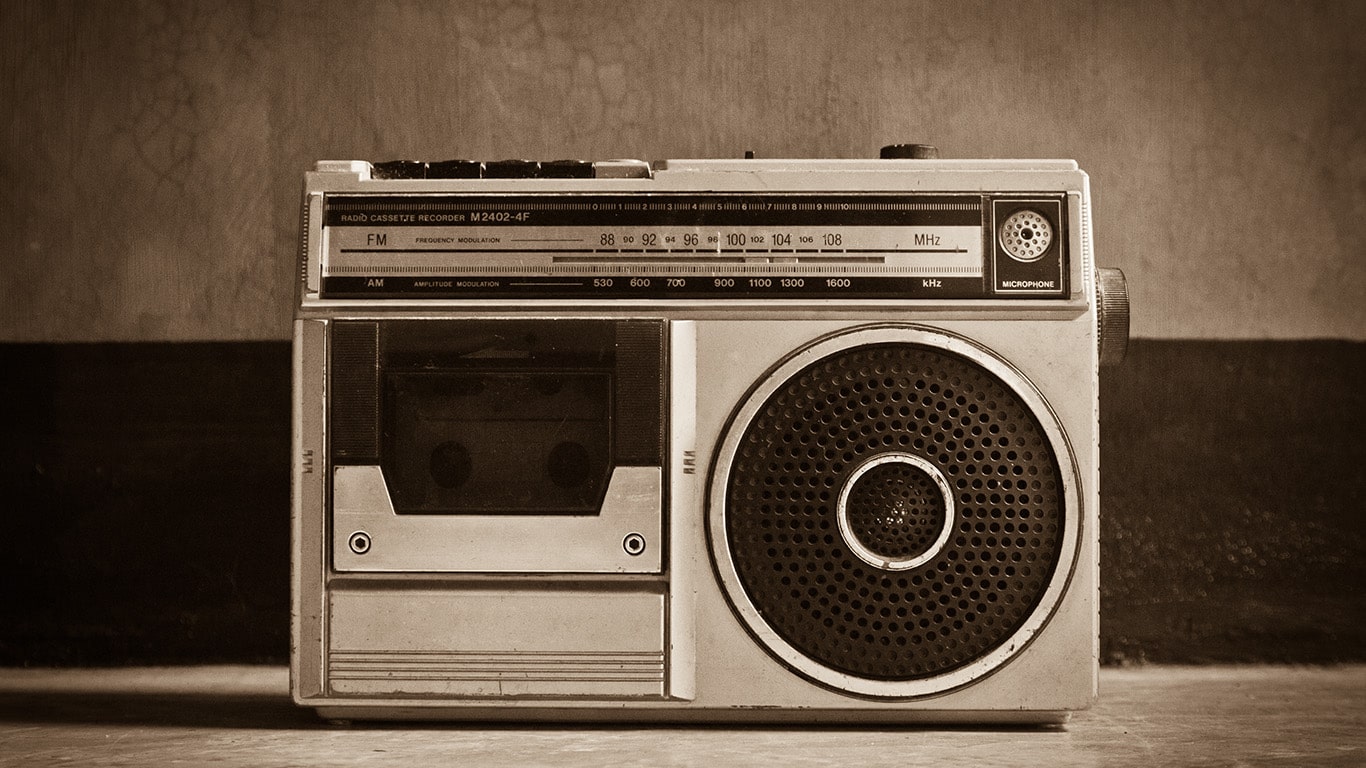
Radio has been a crucial form of communication and entertainment for over a century now. Despite the rise of other modern forms of entertainment, such as television and the internet, radio remains relevant and continues to play a significant role in our daily lives. However, like any other form of technology, radio has its advantages and disadvantages. In this article, we will take a closer look at both.
Advantages of Radio:
- Reach: One of the biggest advantages of radio is its ability to reach a large audience. Radio waves can travel long distances and can penetrate walls, making it possible for people to listen to radio stations in their homes, cars, and workplaces.
- Cost-Effective: Radio is one of the most cost-effective forms of media available. It requires minimal investment to start a radio station, and the operational costs are relatively low compared to television or other forms of mass media.
- Portability: Radio is portable and can be listened to anywhere, as long as there is a signal. This makes it an ideal form of entertainment and information for people on the go, such as travelers, commuters, and outdoor enthusiasts.
- Immediacy: Radio allows for real-time communication and provides up-to-date information about events as they happen. This makes it an essential tool for emergency situations, such as natural disasters, when timely information is critical.
- Personalization: Radio stations can cater to specific audiences by offering music, talk shows, and news programs that appeal to particular demographics. This level of personalization allows for a deeper connection with listeners and creates a sense of community.
Disadvantages of Radio:

- Limited Visual Component: Unlike television, radio is limited to audio-only content, which can limit its appeal to certain audiences. Some people may prefer to watch events and programs, rather than just listen to them.
- Interference: Radio signals can be disrupted by physical barriers, such as buildings and trees, as well as electrical interference from other devices. This can result in poor reception and reduced audio quality.
- Limited Geographic Reach: Radio stations have a limited geographic reach, and listeners may not be able to receive signals from stations located outside of their coverage area. This can limit the audience for certain stations and restrict access to certain types of programming.
- Advertising: Radio stations rely on advertising to generate revenue, and listeners may find the frequent commercial breaks disruptive and annoying. This can negatively impact their experience and reduce the overall enjoyment of listening to the radio.
Questions on Advantages and Disadvantages of Radio:

Who can listen to radio?
Anyone with a radio receiver can listen to radio stations. This includes people in their homes, cars, workplaces, and even while on the go.
What are the advantages of radio?
Radio has a large reach, is cost-effective, portable, provides real-time information and allows for personalization.
Where can I listen to radio?
Radio can be listened to anywhere as long as there is a signal, including at home, in the car, at work, or on the go.
When was radio first invented?
Radio was first invented in 1895 by Italian physicist and inventor Guglielmo Marconi.
Why is radio still relevant today?
Radio remains relevant today because it provides a cost-effective and portable way to reach a large audience, provides real-time information, and allows for personalization.
How does radio reach a large audience?
Radio reaches a large audience through the use of radio waves, which can travel long distances and penetrate walls.
Can radio signals be disrupted?
Yes, radio signals can be disrupted by physical barriers, such as buildings and trees, as well as electrical interference from other devices.
Could radio be more visually appealing?
No, radio is limited to audio-only content, which may limit its appeal to some people who prefer visual content.
Would radio be a good source of information during an emergency?
Yes, radio can be an essential tool for providing up-to-date information during emergency situations, as it allows for real-time communication.
Should I listen to radio if I don’t like commercials?
It depends on your personal preference. Radio stations rely on advertising to generate revenue, and there may be frequent commercial breaks during a program.
Do all radio stations have the same reach?
No, radio stations have a limited geographic reach, and listeners may not be able to receive signals from stations located outside of their coverage area.
Does radio have a limited visual component?
Yes, radio is limited to audio-only content and does not have a visual component.
Did radio used to be the only form of mass media?
Yes, radio used to be the only form of mass media before the advent of television and other forms of media.
Is radio a cost-effective form of media?
Yes, radio is one of the most cost-effective forms of media available.
Are there any limitations to radio?
Yes, radio has limitations such as limited visual content, interference, and limited geographic reach.
Was radio more popular in the past?
Yes, radio was once the dominant form of media, but its popularity has declined with the advent of other forms of media, such as television and the internet.
Were there any challenges in the early days of radio?
Yes, there were challenges in the early days of radio, such as interference and limited geographic reach.
Have advancements in technology impacted radio?
Yes, advancements in technology have improved the quality of radio and allowed for more personalization, but it has also led to the rise of other forms of media, such as television and the internet.
Has radio become less popular over time?
Yes, radio has become less popular over time, but it remains an important form of communication and entertainment.
Had radio played a significant role in our daily lives?
Yes, radio has played a significant role in our daily lives for over a century and continues to be an important part of our culture.
What is the disadvantage of radio drama?
The disadvantage of radio drama is its limited visual component. Radio drama relies solely on audio elements to tell a story, which can make it difficult to convey certain aspects of the story and create a sense of visual atmosphere. This can limit the effectiveness of the storytelling and make it less appealing to some listeners who prefer visual media. Additionally, radio drama may not be as impactful or memorable as visual forms of storytelling, such as film or television.
What are the advantages and disadvantages of radio advertisement?
Advantages of Radio Advertising:
- Reach: Radio has a large reach and can be accessed by a wide audience, making it an effective way to get information to a large number of people.
- Cost-effective: Radio is one of the most cost-effective forms of media advertising, making it a good choice for businesses and organizations with limited budgets.
- Targeted audience: Radio stations can be targeted to specific audiences, which can help you reach the people you want to reach.
- Timing: Radio stations typically air commercials at specific times, allowing you to reach your target audience during peak listening hours.
Disadvantages of Radio Advertising:
- Limited visual component: Radio advertising is limited to audio-only content, which may not be as appealing to some people who prefer visual content.
- Competition: Radio advertising can be competitive, with many businesses vying for airtime.
- Commercial clutter: Radio stations often have frequent commercial breaks, which can make it difficult to get your message across and can be annoying to listeners.
- Short duration: Radio commercials are typically only 30 seconds long, which may not be enough time to fully convey your message and make an impact.
conclusion
In conclusion, radio remains an important form of communication and entertainment, despite the advent of other forms of media. It provides a cost-effective and portable way to reach a large audience, as well as personalization and immediacy. However, it also has its limitations, such as limited visual content and interference, which can reduce its overall appeal and impact. Nevertheless, radio continues to be a significant part of our daily lives, and its importance should not be underestimated.




